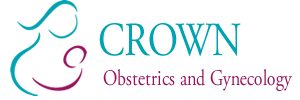
Bone Health
Bones are thickest and strongest in early adulthood; we gradually start losing bone mass from around age 35 and the risk of osteoporosis increases as we grow older. Crown OB/Gyn offers comprehensive services for preventing and treating osteoporosis. We work with you every step of the way, including education, diagnosis, and treatment.
If you’re concerned about your current bone health and risk for fractures, you may benefit from a bone densitometry or bone density scan. Bone densitometry will measure both the density and the mineral content of the bones in your body. Your bone density is measured by performing a dual-energy X-ray absorptiometry (DXA) scan, sometimes pronounced "dexa". Unlike a standard X-ray, the DXA scan is highly effective at measuring even very small amounts of bone loss. This test will determine if your bone density is at a healthy level or if any degeneration or development of brittleness has occurred. The loss of bone is referred to as osteoporosis, which is when the body isn’t able to produce new bone in conjunction with the degeneration of old bone. Especially at the time of menopause women may lose bone mass quickly for several years.
Women and men can develop osteoporosis at any age, but it is most common in post-menopausal women. Risk factors include:
Advanced age
Personal history of fractures after age 50
Family history of fractures or osteoporosis
Low peak bone mass at maturity
Low body weight and /or small frame
Inactivity
Low calcium intake and/or vitamin D deficiency
Smoking
High alcohol consumption
Use of corticosteroids or other high-risk medications
Early onset of menopause or diminished activity of the ovaries or testes
Medical conditions such as ulcerative colitis, celiac disease, hyperthyroidism, and kidney failure

